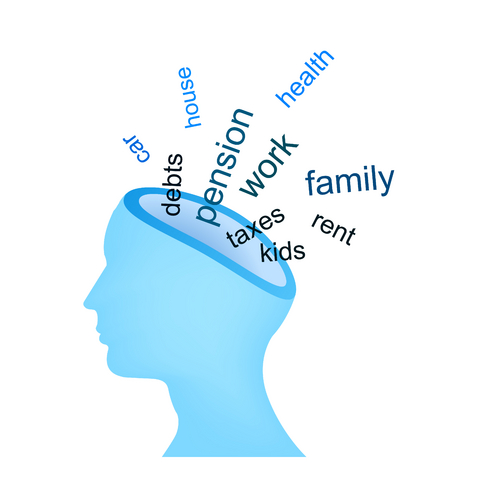Thoughts as Cloud-like Phenomena of the Mind
Minding the bedside, remaining mindful, aware, and compassionate in the presence of those we care for, comes from turning the mind, re-turning the mind inward; transforming the stormy arisings of thoughts, emotions and feelings and recognizing them to be impermanent phenomena, like passing clouds in the sky.
Rumi wrote:
The Guest House
This being human is a guest-house
Every morning a new arrival.
A joy, a depression, a meanness,
some momentary awareness comes
as an unexpected visitor.
Welcome and entertain them all!
Even if they’re a crowd of sorrows,
who violently sweep your house
empty of its furniture,
Still, treat each guest honorably.
He may be clearing you
out for some new delight.
The dark thought, the shame, the malice
meet them at the door laughing
and invite them in.
Be grateful for whoever comes,
because each has been sent
as a guide from beyond.
Seeing our thoughts, emotions, feelings and sensations as guests, or at least as temporary visitors, being grateful that we have the cognizant quality of mind to recognize them for what they are, as temporary and transient phenomena, is how we begin to work with our mind.
Our mind doesn’t have to be defined by what arises within it; thoughts, ideas, impressions can all be allowed to pass through our mind without our grasping on to them. In the same way that clouds come and go, thoughts and emotions left to simply be, will arise, stay briefly and then dissipate. It’s only through focusing on and thinking about thoughts that we perpetuate them.
Can Difficult Thoughts and Emotions Serve You as a Nurse?
The transformation of our mind begins when we start to take a look at its nature, its habits and patterns, from a non-judgmental place; when we are able to just be with whatever thoughts are arising in our mind, whatever sensations are arising in our bodies, without creating stories around them, without elaborating on them, without the ongoing process of fabricating an anxious and ongoing stream of thought.
Again, we need to re-view what our perceptions of ourselves are; are we our thoughts? Our emotions? Are we our educational degree, designation, or profession? Or are we much more? (we are much more…and much less!)
How we are when we show up at the bedside depends upon our ability to be with whatever is arising at the moment, and to not be distracted from our patients. Actually, that’s why I wrote the book, Minding the Bedside; my idea was to share with you the ways that I’ve learned to show up at the bedside by using meditative awareness, mindfulness and compassion.
The following exercise will help you to begin to work with your mind and with the thoughts that arise within it. Also, please have a look at similar posts for more information and discussions around working with the mind and its thoughts.
Exercise: (PDF script)
Beginning to Work with Our Thoughts
Meditation Resources
Here are a few items that can help you to meditate whether you’re a beginner or already have a practice. All of these resources are aimed at helping you in your meditation practice and to do so with less effort and more success. Please let me know what else you need, that’s what I’m here for.
Meditation Posts:
- What is Meditation? Sometimes It’s About Failure
- How to Meditate: Distraction in Meditation Doesn’t Matter
- Meditation Tip of the Week: Stop Meditating
- Meditation Tip of the Week: Meditate…Even When it Doesn’t Work
- How to Meditate: The Most Important Practice…Plus One Great Tip
Meditation audio downloads:
- Riding the Breath With the Mind
- Beginning With Your Thoughts
- Working With Our Thoughts (more advanced)
This site has tons of tools for learning how to meditate and be compassionate.
I encourage you to look through the HUNDREDS of articles that I’ve written and especially check out my weekly meditation tips and other useful meditation materials provided for your health and well being. Please let me know if you’d like to discuss anything with me, have any questions or need clarification regarding anything that I’ve written about.






Leave A Comment